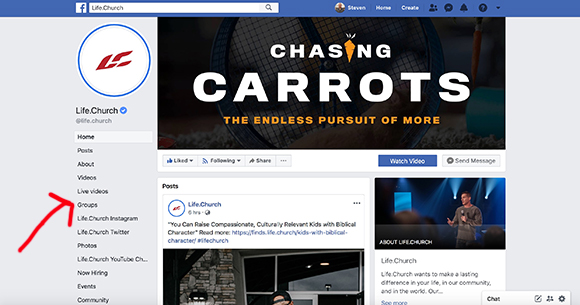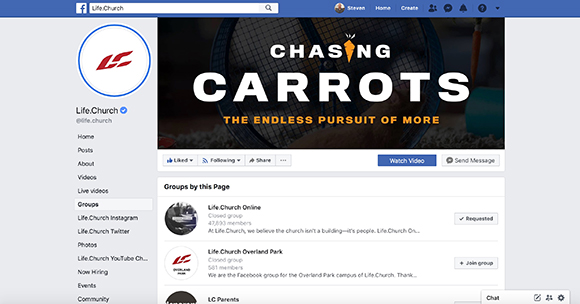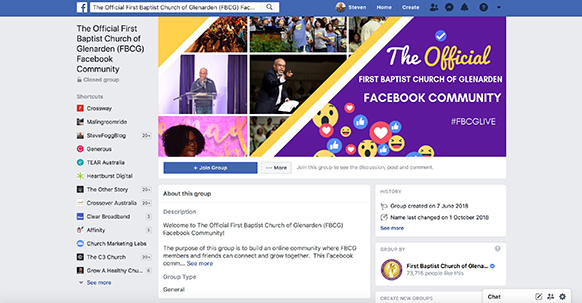
I had the absolute pleasure of hearing Nona Jones present a keynote this week. If you don’t know Nona she is the head of Global Faith Based Partnerships at Facebook.
Yes, Facebook is being very intentional about enabling faith based communities build their communities on Facebook. Nona’s husband is also a pastor and they lead a church.
Nona’s back story is very cool to how she got the role is very cool. But that’s for another time.
Back to what she had to share. It matches in really nicely with what I wrote about earlier this week (read it here). Facebook is moving much more intentionally towards Facebook groups and isn’t limiting what people see in those groups. No. Throttling. Back. Your Content. Unlike pages.
So there is a huge opportunity here for churches who already have pages who are frustrated at the loss of reach.
Read more of the backstory of the pivot into Facebook groups here.
How groups are different to pages
Facebook Pages – Your Facebook page is the outward profile of your church. It is your church’s social front porch which is only surface deep. You can’t really have meaningful interactions on it because everything is public. But the good news is that anyone can see these posts. The bad news is that because Facebook sees most pages using their pages as broadcast communications they throttle the reach of the posts back to around 10% of the audience.
Facebooks Groups – They are for internal community building and communications. There are three types of groups: closed, private and public. public, closed, and secret. I would recommend you set it as closed.
Here’s why.
Facebook groups are like your church’s living room. You don’t let just anyone into your house without greeting them first.
It’s the place that you can invite people inside of your ministry. You can get to know them. They can get to know you. Most importantly, they can get to know each other. I think the power of ministry is not what happens when you come and sit in the audience and hear somebody teach. It’s what happens when you connect with other people who are in the same life season as you are and you discover that you’re not alone. You’re able to mature in your faith relationally.
Nona shared a great example of one person who asked for prayer for a friend who was suicidal. Hundreds of people were praying for this person. It was immediate and fast. Thats community in action right there.
No more email prayer chain, or hand-written prayer chain. Immediate and fast.
Nona says that it is her vision to “see every local church equipped to make disciples in digital communities. I’d love to see every local church have an online church that’s powered by Facebook, In particular, Facebook groups. That’s a product that’s really under-utilised in communities of faith.”
You can also connect your page to your group and if you are intentional about pointing people to your group and connecting them in, you will grow your group quickly and your community will be able to see the content that was previously throttled back and not seen. Sound good?
Bottom line: Smart churches will work with the Facebook algorithm, rather than against it.
I’ll share more next week on the different ways you can use Facebook groups for your church. Meanwhile, here are some examples of churches who have groups.

Below you can see that Life.Church has multiple groups for different purposes.


Your turn
Got questions about Facebook groups or anything else? Leave a comment below.





